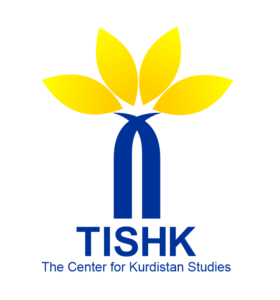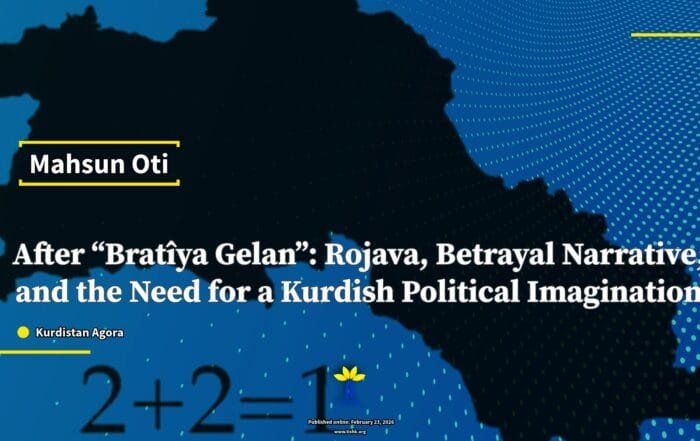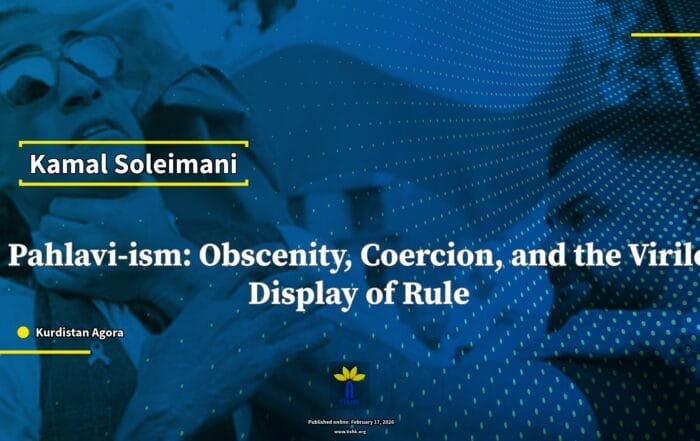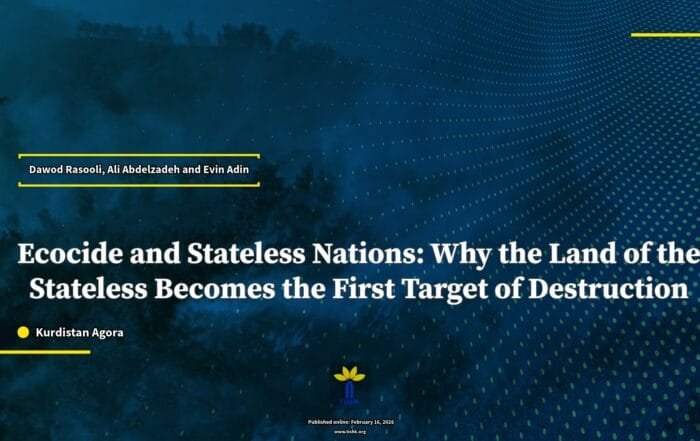OPINION
Negotiations between the Kurds and the Iranian Regime: Lessons, Strategies, and Tactics
Published online by TISHK Center for Kurdistan Studies: 20.07.2025
DOI
Eliassi, Baban (2025): Negotiations between the Kurds and the Iranian Regime: Lessons, Strategies, and Tactics. Kurdistan Agora. TISHK Center for Kurdistan Stdies.
Abstract/From the text
The assassination of Dr. Abdul Rahman Ghassemlou in 1989, during negotiations with representatives of the Iranian regime, continues to serve as a poignant emblem of the perils confronting Kurds in their quest for dialogue. This article examines the historical context of negotiations between the Kurds and the Islamic Republic of Iran, highlighting a series of broken promises, violence, and oppression. The following key lessons are drawn from these experiences: It is imperative that any future negotiations are conducted under explicit conditions. Such conditions must include the utilisation of neutral venues, the engagement of international mediation, and the presence of overt signs of goodwill, such as the release of political prisoners. It is imperative to acknowledge the significance of a diverse Kurdish delegation, comprising women, young people, legal professionals, members of the diaspora, and representatives of civil society. The Kurdish cause must not be regarded in isolation, but rather as part of the broader struggle for democracy in Iran. Notwithstanding the numerous challenges encountered, dialogue continues to be regarded as a potential instrument of resolution. However, its efficacy is contingent upon meticulous preparation, robust security measures, and a foundation of genuine strength.
.
Keywords: Kurdish negotiations, Iranian regime, Ghassemlou assassination, Kurdish autonomy, conflict resolution strategies
Negotiations between the Kurds and the Iranian Regime: Lessons, Strategies, and Tactics
Introduction
July 13 marks the anniversary of the assassination of Dr. Abdul Rahman Ghassemlou, iconic leader of the Kurdistan Democratic Party of Iran (PDKI), murdered in 1989 in Vienna during official negotiations with representatives of the Iranian regime. This tragic event remains a painful reminder for Iranian Kurds of the extreme dangers posed by engaging in poorly framed dialogue with an authoritarian state.
After the 1979 revolution, the Kurds sought to open a dialogue with the new Islamic Republic. However, their demands for cultural autonomy, political recognition, and institutional representation were met with outright rejection and violence. What followed was not negotiation, but decades of repression, forced assimilation, and the systematic denial of Kurdish identity.
Ghassemlou’s assassination exemplifies the regime’s approach:
negotiations are not a space for compromise, but potential traps—even mechanisms for physical elimination. Khomeini had declared a “sacred war” (jihad) against the Kurds, portraying their political demands as religious rebellion. This framing continues to shape the Islamic Republic’s view of the Kurdish question.
This history must not prevent future dialogue—but it must guide it. Extreme caution, strategic preparation, and clear principles are essential. Any engagement must meet a set of non-negotiable conditions to ensure safety, clarity, and legitimacy.
No negotiations should occur on Iranian soil. Any serious dialogue must be hosted in a neutral country, under the supervision of a credible third party such as the United Nations, Switzerland, or Norway. This is not symbolic—it ensures physical safety and political credibility.
Negotiations should begin only after verifiable signs of goodwill from the regime, such as the release of political prisoners, the cessation of military operations in Kurdish areas, and the public acknowledgment of Kurdish identity and the political nature of the talks. The regime must officially announce the negotiation process and recognize the legitimacy of the Kurdish delegation. These steps signal serious intent and help prevent manipulation.
Strategic Principles: Conditions for Meaningful Dialogue
Kurdish negotiators must represent the full diversity of Kurdish society: women, youth, legal experts, diaspora members, and civil society actors. This avoids personalizing the movement around a few figures—who can be targeted—and reinforces democratic credibility.
The Kurdish cause must be framed as part of the broader struggle for democracy in Iran. This includes building alliances with other marginalized groups—Ahwazi Arabs, Baluchis, Azeris—as well as with feminist movements, labor unions, and students. Doing so defuses accusations of separatism and builds solidarity.
The Kurdish side must negotiate from strength, not desperation. This includes active international alliances, diaspora mobilization, media and human rights advocacy, and strong grassroots organization in Kurdistan.
Several negotiation tactics can help consolidate this position. It is essential to demand a clear multilateral process with a neutral location, international observers, and transparent procedures. Temporary pauses in political campaigns or resistance efforts can be considered in exchange for concrete measures, such as the release of prisoners or humanitarian access, in order to test the regime’s sincerity without weakening the movement’s leverage.
Negotiating as part of a broader coalition of oppressed groups expands the support base, deters repression, and prevents isolation. Framing Kurdish demands in the language of international law and UN conventions, and anchoring them in global norms of minority and cultural rights, helps legitimize the movement in the eyes of the international community.
Strategic use of media to publicize the phases of negotiation can force transparency and reduce the regime’s capacity to act in bad faith. Silence favors authoritarian actors; transparency protects the process. It is equally important to ensure that the Kurdish delegation remains pluralistic, representative, and resilient to co-optation or marginalization.
Finally, negotiations should be accompanied by parallel pressure: diplomatic lobbying, media advocacy, diaspora mobilization, and grassroots activism all serve to keep momentum alive and demonstrate that the Kurdish movement enjoys national and international support.
While past experiences, especially Ghassemlou’s assassination, underscore the dangers of engagement, dialogue—if carefully structured—can still serve strategic purposes. In times of regime crisis, limited tactical gains may be possible, such as easing repression or achieving humanitarian concessions.
The evolving internal and external pressures on the Islamic Republic create potential openings. Meanwhile, the Kurdish diaspora and its allies in Western parliaments offer essential soft power—through media advocacy, international solidarity, and political pressure.
As Qassimlou himself once declared
“A nation that seeks freedom shall also pay its price. No nation without struggle and great effort, without sacrificing its valuable youth has attained freedom. The Kurdish nation, and our Party … understands that freedom requires devotion and self‑sacrifice… Our struggle is a legitimate cause; it is the struggle for the liberty of a nation; struggle for the future of our children.”
— Dr. Abdul Rahman Ghassemlou, Kurdistan Bulletin, No. 3, PDKI (1989)
These words continue to resonate, reminding us that the Kurdish cause is not only political—it is moral, generational, and rooted in the universal right to self-determination.
Conclusion
Dialogue with the Islamic Republic is possible—but fraught with risk. It must be approached with full awareness of historical betrayals and grounded in real leverage. The regime may never willingly offer justice, but with the right strategy, the Kurds can defend their dignity, make strategic gains, and lay the foundation for future recognition.
References
– Fisher, R., Ury, W., & Patton, B. (2011). Getting to Yes: Negotiating Agreement Without Giving In (3rd ed.). Penguin Books.
– Amnesty International. (1989–1990). Iran 1989: The Assassination of Qassemlo in Vienna. Amnesty International Archives.
– Human Rights Watch. Iran: Violations Against Ethnic Minorities. Annual Reports.
– PDKI (1989). Kurdistan Bulletin, No. 3. www.pdk-iran.org
Other Research
After “Bratîya Gelan”: Rojava, Betrayal Narrative, and the Need for a Kurdish Political Imagination
Mahsun Oti PhD student in Anthropology at Rutgers University, USA. Published online by TISHK Center for Kurdistan Studies: Bonn, Germany: 23 February 2026 The Point Whether one interprets this as [...]
Pahlavi-ism: Obscenity, Coercion, and the Virile Display of Rule
Kamal Soleimani Published online by TISHK Center for Kurdistan Studies: Bonn, Germany: 17 February 2026 Abstract Neo-Pahlavism has re-emerged not as a coherent doctrine but as a contemporary regime of [...]
Ecocide and Stateless Nations: Why the Land of the Stateless Becomes the First Target of Destruction
Dawod Rasooli (PhD of Soil & Water Silences; TISHK Center for Kurdistan Studies, Germany), Ali Abdelzadeh (Associate Professor in Political Science at Dalarna University, Sweden) and Evin Adin (Soil Fertility Researcher; TISHK Center for [...]






